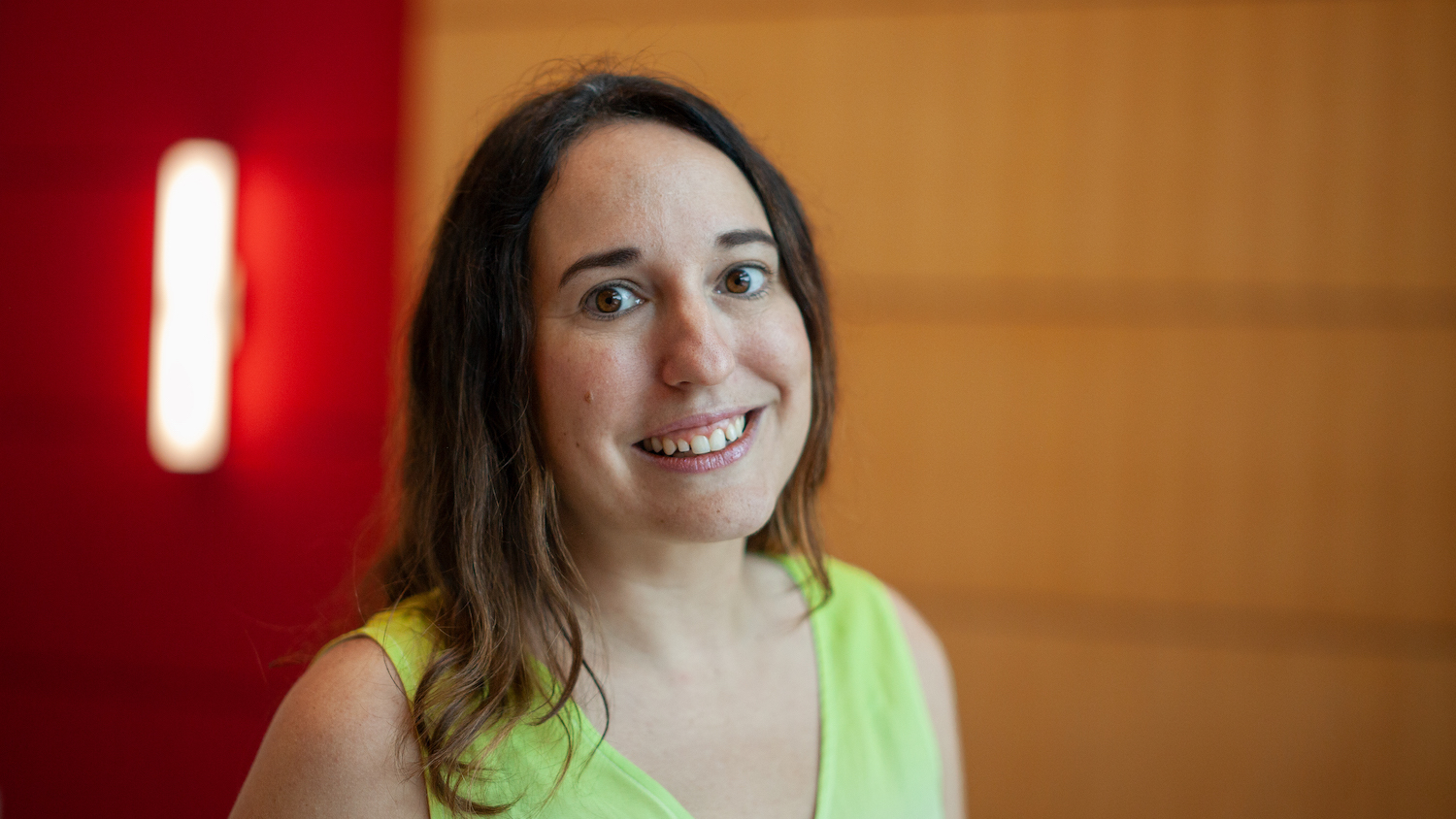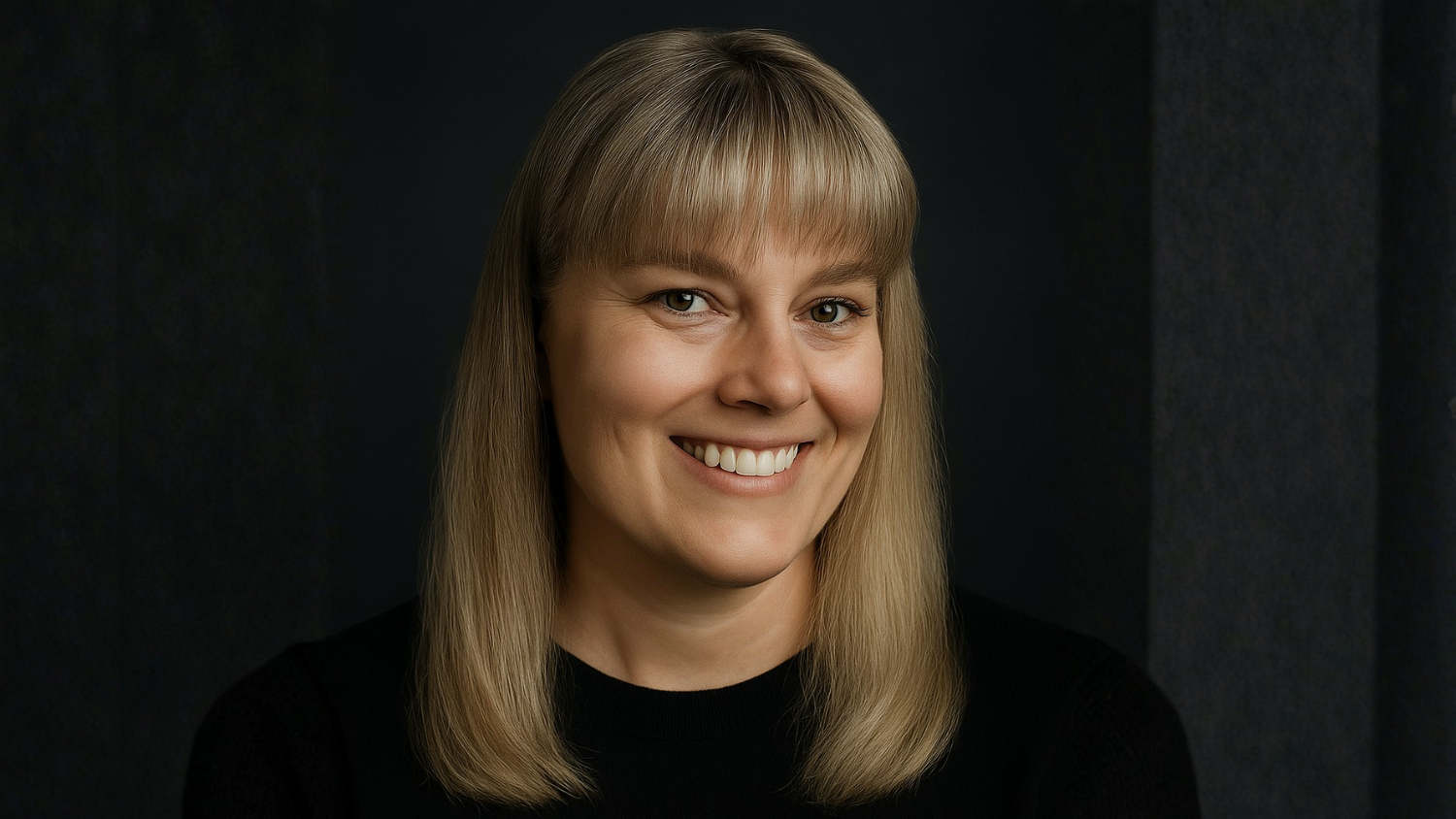Meet DELTA Faculty Fellow Stacy Supak

For each of Assistant Teaching Professor Stacy Supak‘s three degrees, she studied something different, kicking off her education with an undergraduate degree in environmental civil engineering. Next, it was onto geophysics for her master’s, and she completed her formal education with a Ph.D. in parks, recreation and tourism management with a minor in geographic information systems.
Thanks to this diverse educational background, Supak considers herself a generalist with a broad scope of knowledge. But what she knows best is the commonality that links her degrees as well as her teaching and research within the Center for Geospatial Analytics: geospatial thinking.
“If you have a dataset that has some sort of locational identifier, whether it’s addresses, geographic coordinates, ZIP codes, counties or even the state, you can connect that data to other available datasets using that attribute of location for the purpose of gaining new information, knowledge and actionable insight. Any time you incorporate location into your greater understanding of a situation, that is considered spatial thinking.”
As a DELTA Faculty Fellow, she’s using technology to teach students at NC State who are highly interested in spatial thinking and geospatial problem solving just like her.
“My classes draw students from a huge cross-section of the NC State student population, as applying geospatial thinking and problem solving is relevant across many disciplines and research goals. I have geologists and sociologists; I have historians and civil engineers. My students regularly come from at least five different colleges and 10 different departments across campus,” says Supak.
With between 200 and 300 students under her guidance each semester, Supak knows to make the most of her time as their professor. That means crafting refined, organized and engaging online courses that leave them wanting to learn more.
She has plenty of experience in doing just that. After completing her Ph.D. in NC State’s Department of Parks, Recreation and Tourism Management (PRTM) in spring 2013, she swiftly transitioned from student to teacher in fall 2013. For many instructors, teaching with technology is the progressive evolution of a more traditional pedagogy. For Supak, learning technologies have been a central aspect of her courses from the start.
Starting in spring 2013, she taught one blended class, a hybrid between online and in-person instruction. In the spring of 2014, she instructed her first entirely online course. Since fall 2015, she has been an online instructor exclusively, and she enjoys teaching asynchronous courses. Supak especially appreciates the careful planning and execution that teaching online courses affords.
“I love it,” she says. “Recording lectures allows me to be very thoughtful about what I say. I write transcripts for myself before recording to ensure I exactly hit the points I want to hit, and I’m always evolving the course content to be the best it can be.”
Providing recorded vodcasts directly benefits students in several ways. They can pause, slow down and speed up recordings, download lectures to view offline in accordance with their schedule, and save materials to use after the course has been completed. With large introductory geospatial information science (GIS) courses that require technology to both manage course material and address learning objectives, there’s a high chance of error. Supak’s efforts attempt to minimize problems surrounding the use of these technologies and create invaluable resources for students who cherish the subject.
Throughout her years of experience in teaching with technology, DELTA has been by her side. An affinity was sowed early on, and as an early adopter of Moodle and other instructional technologies, Supak’s relationship with DELTA blossomed into a fruitful partnership.
“I really loved all of the sessions DELTA offered to help instructors improve the way they deliver course content with Moodle. Over the years, I’ve enjoyed other aspects of DELTA’s offerings, for example, Summer Shorts and the DELTA-Con unconference. I have also had many great consultations with folks from DELTA as I revise my courses. One of the most beneficial was a consultation on how to modify my Moodle grade book to make it work best for me and my students.”
As a DELTA Faculty Fellow, Supak contributes to a larger history. The Department of PRTM has had several Fellows over the years. With her positive experiences in mind and a passion for online instruction, Supak applied and was awarded a grant during the 2018-2019 cycle. In her new role, Supak joins colleagues Michael Kanters and Edwin Lindsay as they build a legacy of Faculty Fellows for their department.
“I spent a lot of time thinking about my use of technology in my courses, and I feel like I’ve developed some novel uses and successful practices that I would be happy to share with others. This seemed like a really good outlet for that,” she says.
In addition to sharing her insights with workshops, webinars and panels, she’s tracking and raising student engagement in online courses, which she describes as “the real meat of what I want to do with this fellowship.”
“Undergraduates in a completely online learning environment don’t engage with the materials as much as I would like them to,” she notes. “[I want to] motivate their engagement using interactive video interventions. One of the methods we know is effective for motivating undergraduates, and graduates for that matter, to engage with teaching materials is to award points that count toward the final letter grade. I plan to have questions imbedded within my videos so that students have to demonstrate an understanding of the material during the learning process. Then, the results from those in-video questions can be automatically added to the Moodle grade book, so that students get points.”
To make this idea a reality, she’s joining DELTA’s pilot group for PlayPosit, an interactive media tool that will allow her to seamlessly integrate learning assessments and grading into instructional videos.
As demonstrated, Supak’s attention to student challenges is what makes her online instruction so effective. She’s highly motivated to find solutions and overcome obstacles, a necessary component to teaching with technology –– and teaching students to use GIS technology –– which often proves unpredictable.
“Failure with technology is just part of the experience. Those of us selected to be Faculty Fellows have found ways to use technologies that are effective. Our incorporation of technology should be used to demonstrate best practices, as we have refined its use to meet the specific demands of our courses. Now we can share that with others.”
By collaborating across department and college lines, DELTA Faculty Fellows are transmitting knowledge and transforming online learning with university-wide impacts.
“We’re circling in on the best methods for communicating our experiences with the larger university audience. All of the Faculty Fellows really care about finding effective ways to use technology, and also, we see value in sharing what was not effective in our courses. Even just within our own small group, we are learning from each other.”
Supak lists consistency and thoughtful communication as two essential components of teaching online technology-heavy courses.
“Consistency in the delivery of the content is key. My Moodle sites are all highly organized so students know exactly what they’re going to see each week when the material is made available. Also, I’ve spent a lot of time working on rubrics within Moodle so that expectations are super clear to both students and teaching assistants.”
She also stresses that it’s important to foster an open and supportive dialogue in online forums. This way, students can ask questions, receive answers and benefit from reading about other students’ experience troubleshooting problems. However, the anonymity afforded by taking a course remotely and asynchronously can give way to the downsides of digital discourse.
“One consistent challenge is that students are willing to say things in online platforms –– through email, on message boards –– that they would never say face to face. It can be tricky.”
While Supak sees a not-so-distant future in which she uses technology that echoes larger computing trends, such as the immersive technologies of augmented and virtual reality, she and her class of Faculty Fellows are at the forefront of educational innovation at the university. As more tools and technologies for online learning become available, NC State is well equipped to meet its potential with DELTA Faculty Fellows.
This post was originally published in DELTA News.
- Categories:


